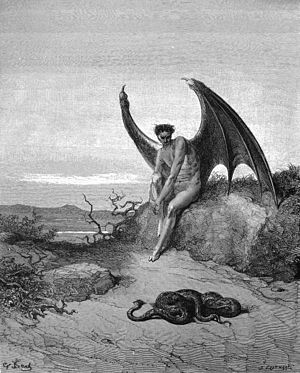The old theologies, the philosophies of religion of ancient times, will not suffice us now. The duties of life are to be done; we are to do them, consciously obedient to the law of God, not atheistically, loving only our selfish gain. There are sins of trade to be corrected. Everywhere morality and philanthropy are needed. There are errors to be made way with, and their place supplied with new truths, radiant with the glories of Heaven. There are great wrongs and evils, in Church and State, in domestic, social, and public life, to be righted and outgrown. Masonry cannot in our age forsake the broad way of life. She must journey on in the open street, appear in the crowded square, and teach men by her deeds, her life more eloquent than any lips.
p. 164
This Degree is chiefly devoted to TOLERATION; and it inculcates in the strongest manner that great leading idea of the Ancient Art, that a belief in the one True God, and a moral and virtuous life, constitute the only religious requisites needed to enable a man to be a Mason.
Masonry has ever the most vivid remembrance of the terrible and artificial torments that were used to put down new forms of religion or extinguish the old. It sees with the eye of memory the ruthless extermination of all the people of all sexes and ages, because it was their misfortune not to know the God of the Hebrews, or to worship Him under the wrong name, by the savage troops of Moses and Joshua. It sees the thumb-screws and the racks, the whip, the gallows, and the stake, the victims of Diocletian and Alva, the miserable Covenanters, the Non-Conformists, Servetus burned, and the unoffending Quaker hung. It sees Cranmer hold his arm, now no longer erring, in the flame until the hand drops off in the consuming heat. It sees the persecutions of Peter and Paul, the martyrdom of Stephen, the trials of Ignatius, Polycarp, Justin, and Irenæus; and then in turn the sufferings of the wretched Pagans under the Christian Emperors, as of the Papists in Ireland and under Elizabeth and the bloated Henry. The Roman Virgin naked before the hungry lions; young Margaret Graham tied to a stake at low-water mark, and there left to drown, singing hymns to God until the savage waters broke over her head; and all that in all ages have suffered by hunger and nakedness, peril and prison, the rack, the stake, and the sword,–it sees them all, and shudders at the long roll of human atrocities. And it sees also the oppression still practised in the name of religion–men shot in a Christian jail in Christian Italy for reading the Christian Bible; in almost every Christian State, laws forbidding freedom of speech on matters relating to Christianity; and the gallows reaching its arm over the pulpit.
The fires of Moloch in Syria, the harsh mutilations in the name of Astarte, Cybele, Jehovah; the barbarities of imperial Pagan Torturers; the still grosser torments which Roman-Gothic Christians in Italy and Spain heaped on their brother-men; the fiendish cruelties to which Switzerland, France, the Netherlands, England, Scotland, Ireland, America, have been witnesses, are none too powerful to warn man of the unspeakable evils which follow from mistakes and errors in the matter of religion, and especially from
p. 165
investing the God of Love with the cruel and vindictive passions of erring humanity, and making blood to have a sweet savor in his nostrils, and groans of agony to be delicious to his ears.
Man never had the right to usurp the unexercised prerogative of God, and condemn and punish another for his belief. Born in a Protestant land, we are of that faith. If we had opened our eyes to the light under the shadows of St. Peter’s at Rome, we should have been devout Catholics; born in the Jewish quarter of Aleppo, we should have contemned Christ as an imposter; in Constantinople, we should have cried “Allah il Allah, God is great and Mahomet is his prophet!” Birth, place, and education give us our faith. Few believe in any religion because they have examined the evidences of its authenticity, and made up a formal judgment, upon weighing the testimony. Not one man in ten thousand knows anything about the proofs of his faith. We believe what we are taught; and those are most fanatical who know least of the evidences on which their creed is based. Facts and testimony are not, except in very rare instances, the ground-work of faith. It is an imperative law of God’s Economy, unyielding and inflexible as Himself, that man shall accept without question the belief of those among whom he is born and reared; the faith so made a part of his nature resists all evidence to the contrary; and he will disbelieve even the evidence of his own senses, rather than yield up the religious belief which has grown up in him, flesh of his flesh and bone of his bone.

Moe is the founder of GnosticWarrior.com. He is a father, husband, author, martial arts black belt, and an expert in Gnosticism, the occult, and esotericism.







